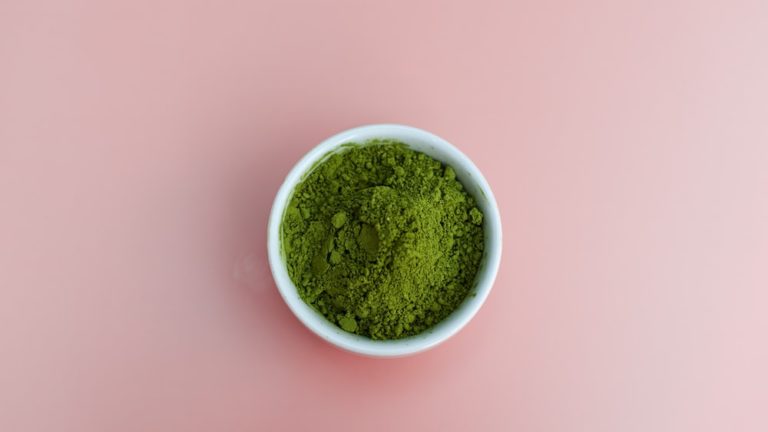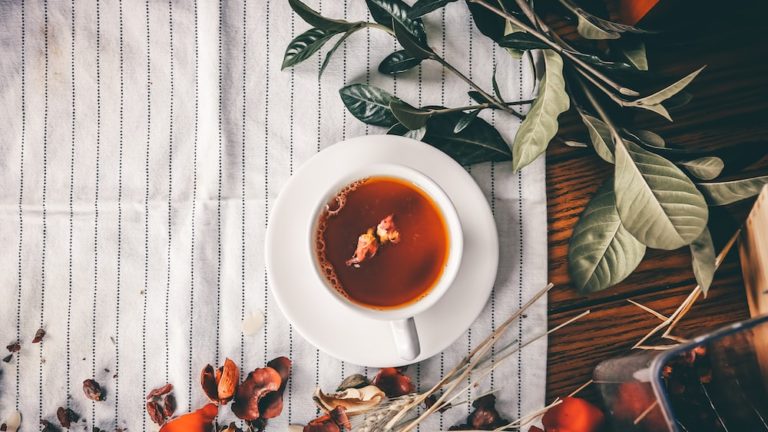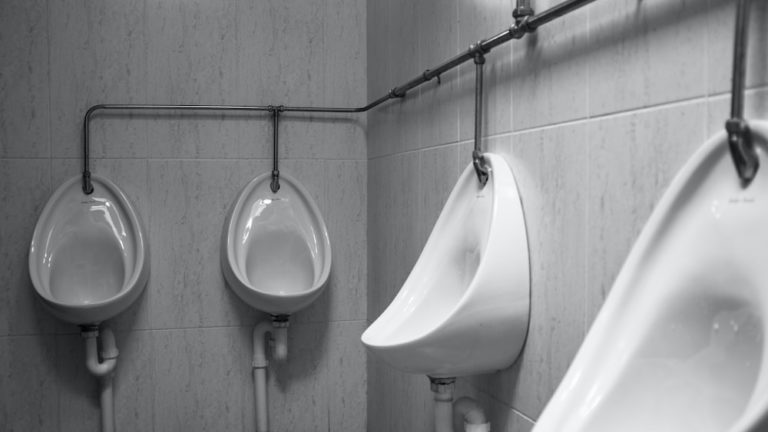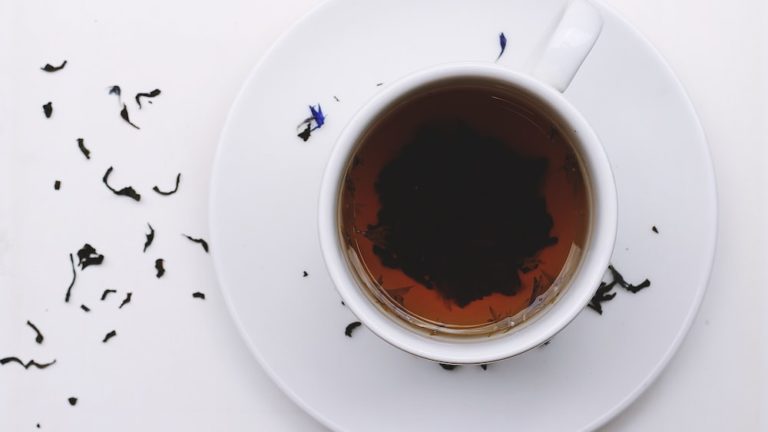Unlock Your Energy Potential With Matcha Tea: Does Matcha Tea Give You Energy?
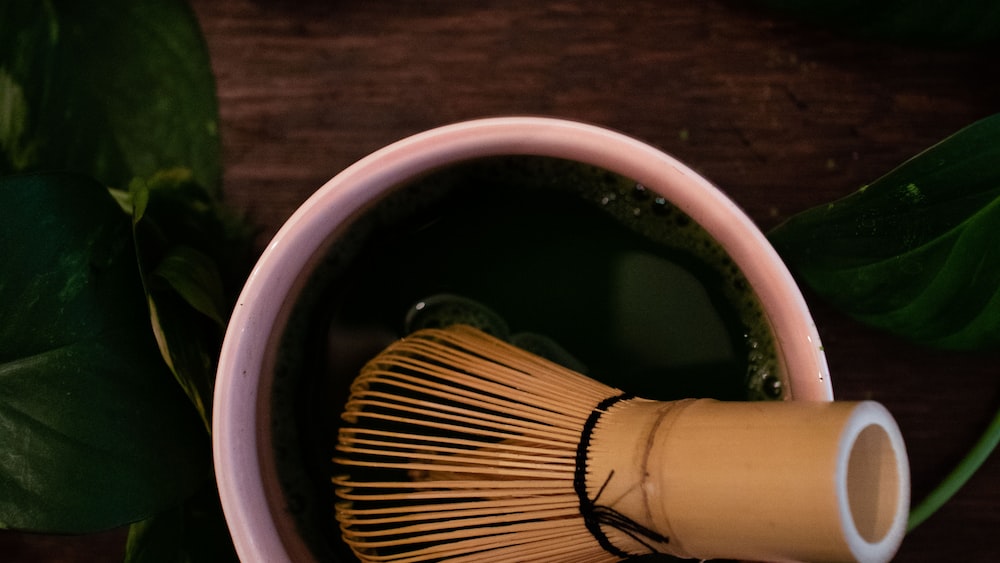
Unlock Your Energy Potential With Matcha Tea: Does Matcha Tea Give You Energy?
Hello, tea aficionados and caffeine thrill-seekers! Here we are again – standing on the brink of an enigma, ready to unlock yet another secret behind our beloved tea. You know that feeling, right? It’s like being Sherlock Holmes every now and then, sniffing out clues, and chasing answers about our favorite beverage. This time we’re putting Matcha Green Tea under our magnifying glass. Does it really have the energy-boosting potential we’ve been promised? Or is it more like an overhyped version of Popeye’s spinach?
In this journey, we’ll journey deeper into the realm of tea, exploring the benefits of matcha, the jade-colored caffeinated elixir that invites curiosity and wonder. Get set to delve into a tale of history, science, and the art of tea-making that will see our quirky little tea leaves transform into a palatable powder of vigor. Think of it like our tea version of “from rags to riches”. Ah, the drama!
The goal here is as clear as our morning brew – to discern the truth about matcha tea’s energy potential. After all, wouldn’t it be great to know if this cup of green mystery could replace the monotony of your daily caffeine routine? If anything, it’d surely add a touch of Zen and color to your mornings!
What is Matcha Tea?
Let’s start by shedding some light on our star performer, shall we? Matcha – say it aloud. It rolls off the tongue delightfully. But what exactly is it? Well, it’s much more than just another green tea.
Origin and History of Matcha Tea
Matcha, the moniker it goes by today, has quite a tale to tell. Backpedal some 800 to 900 years, and you’d find our anointed tea in Japan, where Zen Buddhist monks were propelling an entire cultural phenomenon around it. This enhanced form of green tea made its debut in the Land of the Rising Sun, finding an elevated space within Japanese tea rituals.
Interestingly, the roots of matcha can be traced back even further, all the way to China during the Tang Dynasty. This era saw the birth of the method of grinding tea leaves into a fine powder, later whisked with hot water. Fast forward to the Song Dynasty, and this powdered tea art form became quite the trend among the royals and elite. Little did they know, they were sipping on what would become a global wellness sensation!
And yet, it wasn’t until matcha reached Japan in the hands of the Zen Buddhists that it found its true calling. Yes, it took some monks revved up on caffeine and clarity to truly understand the potential of this vibrant green dust, intricately concocting what we know today as matcha tea.
Matcha tea has a rich history dating back hundreds of years, originating in China before finding its true calling in Japan with Zen Buddhist monks.
The Unique Process of Making Matcha Tea
The journey of the sprightly matcha leaves from farm to your ceramic chawan (matcha bowl) is quite the spectacle – imagine a Mr. Bean’s journey with the twist of a thriller! Firstly, the entire operation begins by covering the tender tea bushes with shade cloths before they’re harvested. This process cranks up the plant’s chlorophyll levels, making the leaves darker and the flavor richer.
Following the harvest, the leaves are steamed to stop fermentation. This is a critical procedure that keeps our leaves looking their greenest and the nutrients intact. The subsequent step has these leaves, now called Tencha, air dried and stone ground to a fine powder. This painstaking process ensures even the finest veins and stems are separated, and we are left with the vibrant, super-fine matcha powder.
The Energy-Boosting Components of Matcha Tea
Alright, the history lesson ends here! Put away those time-traveling hats and microscope because we’re about to study the energy components of matcha tea. Sit tight as we turn the pages of a botanical research paper and witness how matcha has been fueling Zen meditations and morning routines all this time.
The Role of Caffeine in Matcha Tea
You might’ve been wondering, is there caffeine in my cup of emerald goodness? Absolutely, good tea-tectives. Each serving of Matcha tea does come with a fair share of caffeine. But unlike a morning coffee that sends you rocketing to the ceiling, crashing shortly after, the caffeine in matcha works quite differently.
Caffeine in matcha plays the long game – it’s released slowly in the body, leading to a more consistent flow of energy. You won’t be falling victim to the notorious coffee ‘jitters’ or an energy crash. Instead, you’re in for a smooth ride with improved concentration and a boost to your cognitive abilities! Talk about an energy uplift, without any disruptive cliffhangers!
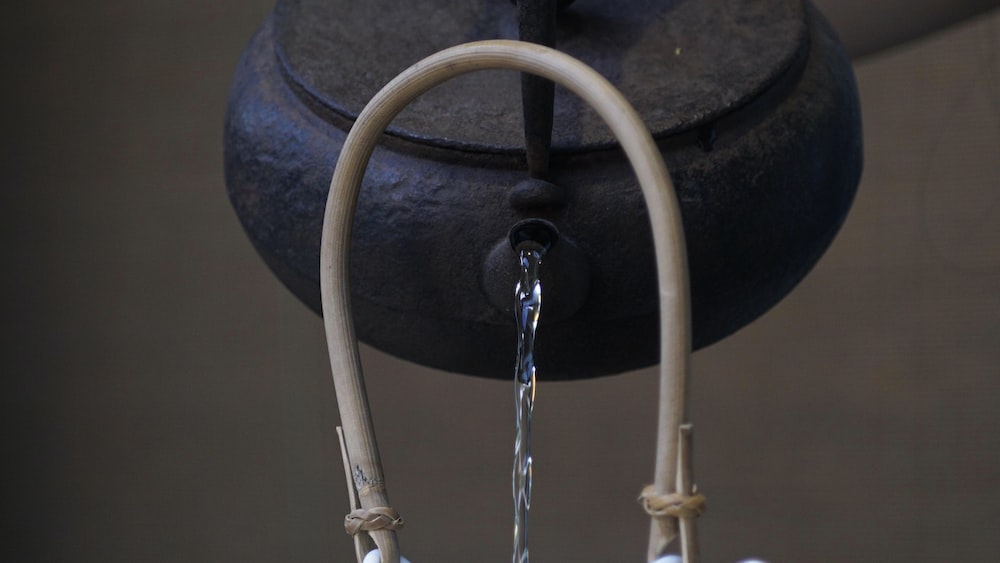
The Benefits of L-Theanine in Matcha Tea
Matcha powder is a teeming treasure trove of a wonderful amino acid called L-Theanine. Rarely found in other teas, L-Theanine brings a basket of gifts that include calming effects, better focus, and a spotless mood. Ever wondered how monks meditate for hours on end? Well, now you know their sneaky little cheat code.
L-Theanine also pulls a rabbit out of its hat by playing a crucial role in the slow release of caffeine. So, while you’re relishing the gentle lift of caffeine, L-Theanine cruises in and takes hold of the reins, steering you towards a state of relaxed alertness. Now that’s a productive cup of tea!
How Matcha Tea Provides Energy
So, how does matcha bestow us mere mortals with its revitalizing energy? Get ready to discover the magic behind the stamina in your cup. Through the powerful combo of caffeine and L-Theanine, matcha creates a synergy that releases energy slowly, delivering you the gift of long-lasting vitality. This isn’t just about surviving the day; it’s about thriving!
The Synergistic Effect of Caffeine and L-Theanine
Could a jitter-less energy really exist? Believe it or not, but that’s precisely the magic behind matcha tea. When caffeine walks into a room, L-theanine is not far behind in matcha tea. And the relationship between these two?
Well, it’s like donuts and coffee on Sunday mornings – they just work together.
Pumped with caffeine, matcha tea is indeed a notable stimulant. Caffeine is like that spirited party guest who arrives first, tidies up the place and makes everyone feel active and energetic. It stimulates the central nervous system, improves focus, and elevates mood by increasing dopamine levels.
This sounds like a win, but the real MVP is L-theanine, the discreet pacifier. Guarding the gate between matcha’s caffeine and your nervous system, it smoothens the caffeine rush and prevents any potential crash in its tracks. L-theanine is a phenomenal amino acid. It allows your body to gradually absorb caffeine, promoting a state of relaxed alertness minus the jitters or crash. The synergy here is nothing short of astounding.
The magic behind matcha tea is the synergy between caffeine and L-theanine, which provides a notable stimulant effect without the jitters or crash.
The Slow Release of Energy from Matcha Tea
Let me paint a picture. It’s the same deal with energy drinks – you get the initial kick, then bam! You find yourself more weary than before the so-called ‘energy boost.’ But it doesn’t have to be like this.
Frothy and bright green, matcha tea works on a different principle (the, ‘slow and steady wins the race’ kind of way). When you sip on your bowl of matcha, the L-theanine from the leaves slows caffeine absorption. This sustainable energy source is like having a divine battery that releases power gradually throughout the day.
Compared to traditional beverages, matcha powers you up for hours without wreaking havoc on your nervous system. Skip the harsh spikes or crashes – the energy kick from the breakaway matcha provides a smooth ride. So, if you want a pick-me-up that is slow, virtuous, and offers sustained vigor, matcha tea might be your perfect partner in the dance of life.
Comparing Matcha Tea Energy to Other Energy Sources
Ah, the age-old question, who wins in the heated battle of matcha tea vs. other energy sources? Does this friendly green fellow stand a chance against time-tested titans like coffee and manufactured energy drinks? Let’s break it down and simply spill the tea!
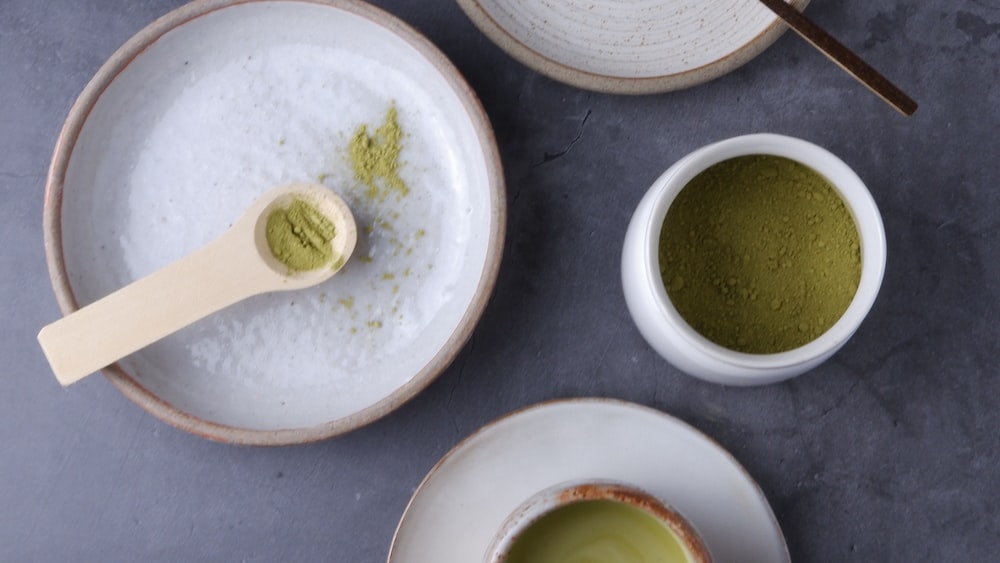
Matcha Tea vs. Coffee: A Comparison of Energy Levels
Imagine this – Monday morning, and you’re yearning for that swift kick from your java jolt. Now consider a calm, productive day powered by matcha tea instead. They’re both great in their ways, but let’s not ignore the subtle differences.
Coffee can be like a high-octane fuel. You get an immediate bolt of energy, but it comes with a side order of jitteriness and a potential crash. It’s like riding an adrenaline roller coaster, where the ups are quickly followed by heavy downs.
On the other hand, matcha tea brings the storm in a teacup. It has roughly half the caffeine content than a standard coffee but provides a steady, non-jittery energy boost, thanks to the presence of l-theanine. The amino acid masks caffeine’s potentially negative effects, guiding you into a chill zone of ‘alert calmness.’ You won’t find such grace in your regular cup of joe.
Matcha Tea vs. Energy Drinks: A Healthier Alternative
Pitting matcha tea against energy drinks is like comparing yoga to extreme wrestling. Sure, they both have their merits, but the methods and effects are worlds apart.
Energy drinks may initially make you feel like you’ve harnessed the power of the cosmos, but soon enough, the bubble bursts, leading to energy crashes and feeling worse than before. They’re similar to sprinters, fast, but quickly out of breath.
Conversely, matcha tea is the marathon runner. The energy release from matcha is gradual, lasting up to 6 hours, with no violent plunges or withdrawals. More importantly, matcha is coming straight from mother nature – no funky additives or artificial stimulants. It’s a no-brainer, folks; the healthier choice is clearly matcha!
How to Incorporate Matcha Tea into Your Daily Routine
Curious about incorporating the wonder that is matcha tea into your routine? Fret not! Drinking matcha can be as simple as it gets, and as flexible as a gymnast, fitting seamlessly into your daily rituals.
Best Time of Day to Drink Matcha for Energy
Timing your matcha tea intake is a bit like synchronizing your watches. Take the wrong move, and we have a mismatch – a missed opportunity.
Ideally, morning is a great time to get your matcha fix. Matcha contains a reasonable dose of caffeine, so having it early in the day will help reinforce your alertness and focus. Moreover, drinking matcha tea half an hour before a workout can amplify your endurance, allowing you to breeze through your exercises like a champ!
Grab that matcha whisk, folks, because, with the right timing, you might just find yourself on the green wave of the ‘matcha magic’. Remember, matcha is not just a drink; it’s a lifestyle!
Delicious and Easy Matcha Tea Recipes
Step into the world of Japanese tea culture right at your home kitchen with these easy and exciting Matcha tea recipes. Who said that matcha can only be served up as a hot brew? Let’s debunk that myth with our first recipe, an Iced Matcha Green Tea Latte. Simply whisk two teaspoons of matcha powder and a dash of hot water in a bowl. Add three teaspoons of sweetener (honey or agave nectar work wonders!) to this mix. Pour this into a glass filled with iced cubes, and top off with your favorite type of milk. Voila, your refreshing iced matcha latte is ready!
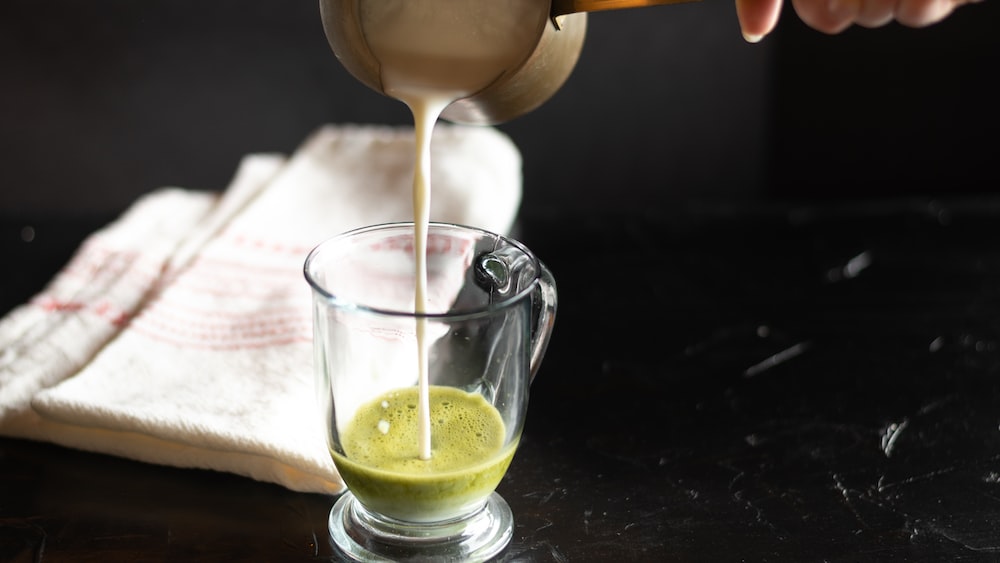
For those who have a sweet tooth, you ought to try the second recipe – Matcha Green Tea Brownies. Can you just imagine? The decadent taste of brownies added with the unique flavor of matcha! Simply follow your go-to brownie recipe, but add two tablespoons of matcha powder to the mix. Trust me on this one, it’s a match(a) made in heaven!
Though these recipes are tantalizing to even think, more often than not, you will find yourself seeking comfort in the traditional hot cup of matcha. And that’s as simple as whisking matcha powder with warm water. Sometimes, coming back home to this soothing routine can be the sweetest reward. These recipes are just a sneak peek into the limitless world of culinary manga with matcha – an exciting addition to your home kitchen or blog cooking sessions.
Step into the world of Japanese tea culture with these easy and exciting Matcha tea recipes, including an Iced Matcha Green Tea Latte and Matcha Green Tea Brownies.
Frequently Asked Questions (FAQs)
1. How much matcha tea should I drink for energy?
To get the desired energy boost from matcha tea, a common recommendation is 1 to 2 cups every day. However, the exact amount can vary depending on individual tolerance levels and daily caffeine intake.
2. Can I drink matcha tea at night?
Drinking matcha tea at night is based on individual preferences and tolerance to caffeine. While matcha tea does have caffeine, it also contains L-theanine, which promotes relaxation. Combined, these lead to a calm, sustained energy boost without the typical caffeine crash. Hence, some people might find matcha a suitable evening drink, while others may prefer to consume it earlier in the day.
3. Are there any side effects of drinking matcha tea?
Side effects of matcha tea are usually linked to its caffeine content. Potential side effects can include nausea, insomnia, or upset stomach, largely if consumed in excess. However, most people can safely enjoy matcha tea without experiencing these effects.
4. Can I replace my morning coffee with matcha tea?
Yes, you can replace your morning coffee with matcha tea. Matcha provides a more gradual and longer-lasting energy boost compared to the quick hit of coffee. Moreover, matcha doesn’t cause the jitters associated with coffee, making it a great alternative for those looking to cut down on their coffee intake.
Conclusion
Navigating through the dense subject of Matcha and its energy benefits has been quite a journey, hasn’t it? It’s no secret why matcha has emerged as a favorite among health enthusiasts worldwide, offering unique benefits packaged in a vibrant green powder.
Remember, whether you are swapping your morning coffee with a cup of matcha or trying out the plethora of innovative matcha culinary explorations, you’re enriching your body with a powerhouse of nutrients. So, is the hype about matcha justified? Absolutely!
The reasons to love matcha are countless and through this blog, we’ve just scratched the surface. Keep exploring, experimenting, and enjoying this terrific tea!
After all, who doesn’t love soaking in the wellness world, one cup at a time? Thank you for being a part of this little matcha adventure. For more amazing tea tales, product reviews and a deep dive into the tea world, stay tuned to our blog. Until next time, stay brew-tiful!
Yours, Zoe.



